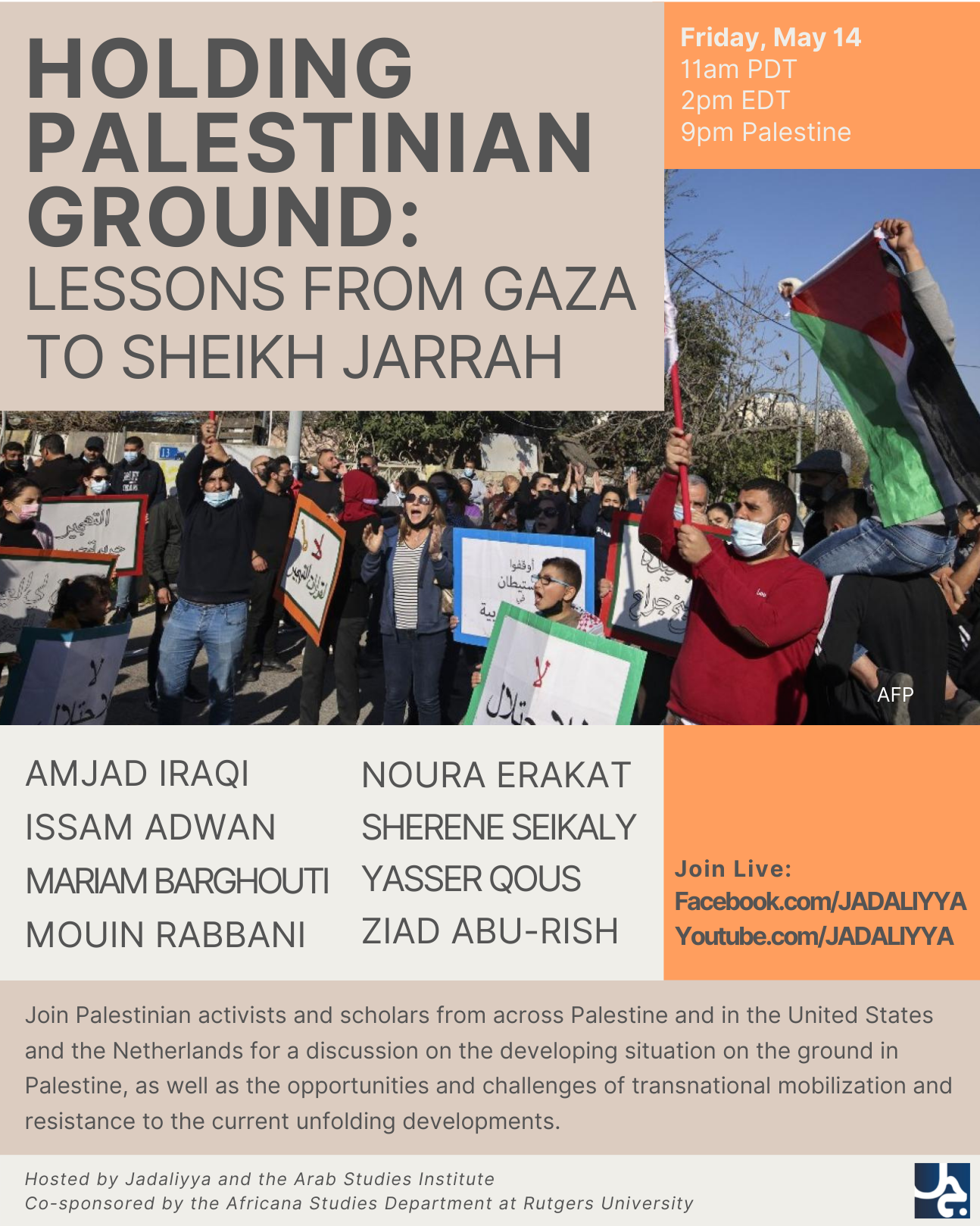Holding Palestinian Ground
Lessons from Gaza to Sheikh Jarrah
Friday, 14 May 2021
11:00 AM PDT | 2:00 PM EDT | 9:00 PM Palestine
Featuring
Issam Adwan
Mariam Barghouti
Mouin Rabbani
Sherene Seikaly
Ziad Abu-Rish
Join Palestinian activists and scholars from across Palestine and in the United States and the Netherlands for a discussion on the developing situation on the ground in Palestine, as well as the opportunities and challenges of transnational mobilization and resistance to the current unfolding developments.
Click here to find a list of resources designed to offer starting points for those looking to place the current situation in historical and political context, and materials for those looking to expand their knowledge of the Israeli state’s efforts to expel Palestinians from their land and to change Jerusalem’s demographic balance by forcing Palestinians from their homes.
Click here and here to watch Jadaliyya Co-Editor Noura Erakat place the protests mobilizing around the ongoing developments of Sheikh Jarrah in context as she dispels prevailing Israeli talking points.
Click here to watch Jadaliyya Co-Editor Mouin Rabbani discuss the growing civil conflict in numerous Israeli towns and cities between Israeli Jews and Palestinian citizens of Israel.
Featuring
Amjad Iraqi is an editor and writer at +972 Magazine. He is also a policy analyst with the think tank Al-Shabaka, and was previously an advocacy coordinator at the legal center Adalah.
Mouin Rabbani has published and commented widely on Palestinian affairs, the Israeli-Palestinian conflict, and the contemporary Middle East. He was previously Senior Analyst Middle East and Special Advisor on Israel-Palestine with the International Crisis Group, and head of political affairs with the Office of the United Nations Special Envoy for Syria. He is Co-Editor of Jadaliyya Ezine.
Sciences Sociales, in Paris. His research interests are social history in Palestine, focusing on the historical construction of the Afro-Palestinian community in Jerusalem.
